Metra employs more than 150 veterans. They come from every branch of the military and work in every department at the agency. From those working to keep locomotives rolling, to those who make sure other employees comply with regulations that keep crews and the public safe, veterans are a crucial part of operations at Metra. This Veterans Day we want to highlight seven of the men and women at Metra who sacrificed their time and risked their safety for the sake of their country.
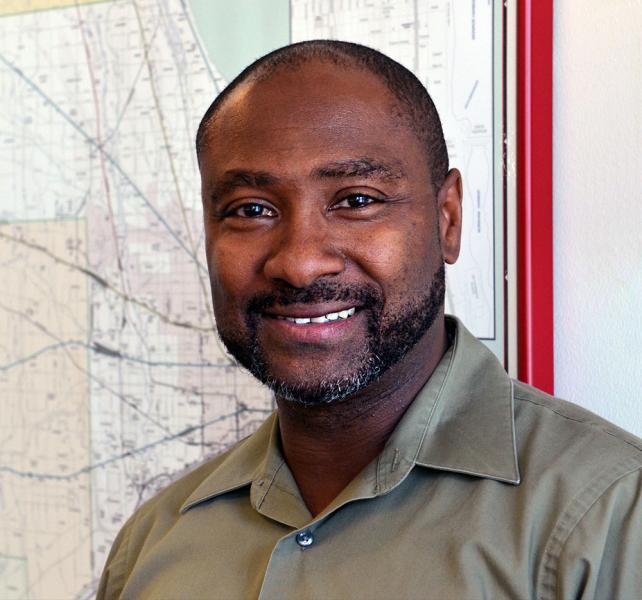 Andre Hunt
Andre Hunt
U.S. Army veteran Andre Hunt’s daily life is all about regimen. As Metra’s Director of Rules, Hunt is responsible for overseeing rules testing for the conductors, engineers, dispatchers, tower operators and maintenance of way employees. He joined Metra in 1997, about six years after he left the Army, which he joined when he was 18.
He served in Operation Desert Storm, with the 101st Airborne Division, where he was an infantryman and gunner on a UH-60 Black Hawk helicopter. He said the lessons he learned were invaluable and have helped him as he’s progressed through his career at Metra.
“It’s got to be the discipline and following instructions and rules and the chain of command,” Hunt said. “That plays a big part of working here at Metra. These jobs are unforgiving and if you don’t follow the rules, a lot of people, including yourself, can be hurt.”
“So the military gave me that discipline to be able to withstand the hours, coming to work not knowing exactly what you’re going to be doing for the day. It gave me that discipline.”
Asked what Veterans Day means to him, Hunt referred to a Facebook post he made years ago on the subject.
“Serving the United States Army was a life-changing experience for me. It taught me the importance of commitment, dedication, honor and discipline,” Hunt recited. “A mixture of those things, plus life lessons, helped shape me into the person I am today.”
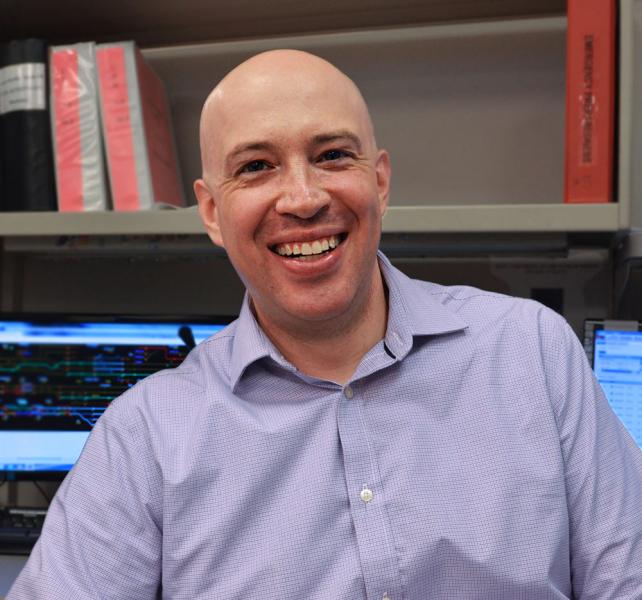 Dave Lipsky
Dave Lipsky
Dave Lipsky’s experience in the military didn’t end in the early 2000s when he left the U.S. Army. He’s got more than a decade of military experience, most recently serving with the U.S. Army Reserve’s 432nd Civil Affairs Battalion in Green Bay, Wisconsin. He currently holds the rank of captain.
At Metra, he’s a technical communications specialist. Also known as a GPS operator, Lipsky is part of a group that’s responsible for monitoring the movement of over 709 trains daily on Metra’s 11 lines and communicating with train crews and the public about track changes, delays and other issues.
“My military experience taught me accountability. Ultimately, I am responsible for my product or results. The buck stops with me, so to speak,” Lipsky said. “Attention to detail, working under pressure and working as a team. That’s important, especially in my department. Sometimes one person at one desk can be slammed and we have to kind of surge over there to help them.”
For Lipsky, Veterans Day is a time of reflection.
“It’s a time I think back to the people I’ve served with or the friends I’ve made,” Lipsky said. “I think about the sacrifices people made who came before me.”
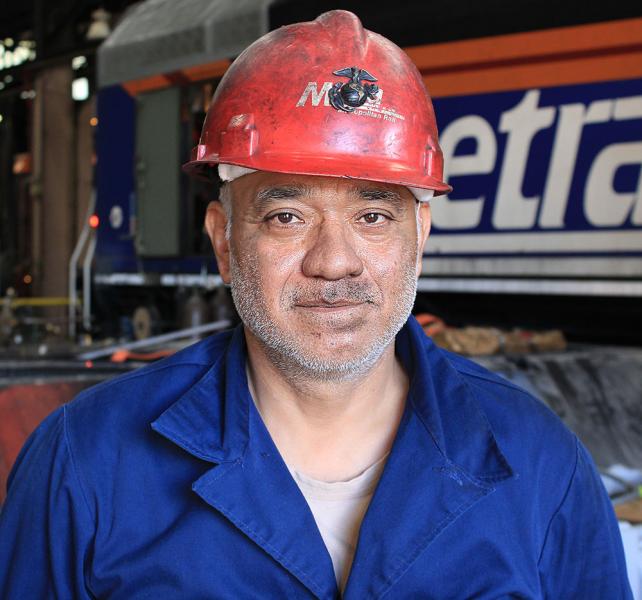 Jose Nateras
Jose Nateras
Jose Nateras might be in the business of trains now, but he owes his electrical know-how to planes.
Nateras served in the U.S. Marine Corps from 1980 until he retired in 2001. He’s now the lead electrician on Metra’s locomotive rehabilitation project.
“With the leadership and the positions I’ve been in, they help me identify logistical problems that I might encounter in my work,” Nateras said. “Being a gunnery sergeant it is more or less like a middle-management position. I can have anywhere from five to 200 people under my charge. So, from there we learn to delegate and we teach our Marines to delegate. That helps here because I follow up on my fellow electricians to see that they are OK and doing their work and that they’re doing it in a safe manner and that they have the materials to do their job. That includes blueprints, tools and, of course, materials to replace what we’re taking out.”
For him, Veterans Day is about paying homage to those who paved the way for him in the Marine Corps.
“To me, it’s a way to pay respect to my predecessors in the Marine Corps,” he said. “The Marine Corps is a very small organization and we keep memories and stats from our predecessors and what they’ve done and honor them for letting us be what we are today. “
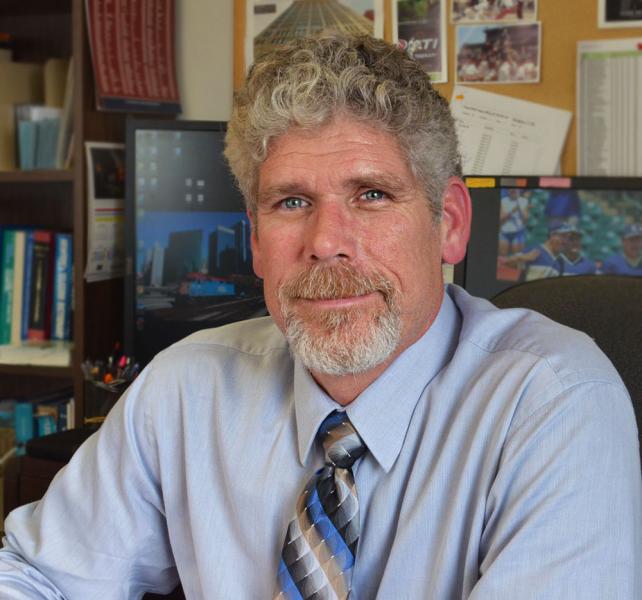 Chris Krakar
Chris Krakar
As Director of Telecommunications, Chris Krakar doesn’t work on Metra’s trains themselves. Rather, he oversees many other important pieces of technology around them. It’s a similar job to the one he held while in the U.S. Air Force from 1983 to 1987, where he achieved the rank of sergeant, maintaining technology around the airfield.
“It taught me discipline and it basically propelled me to the opportunity to go to college,” Krakar said of his experience in the military, which he joined as an 18-year-old without a plan.
Krakar enrolled in night classes while in the Air Force and after he was discharged took advantage of the Illinois Veterans’ Grant, which covered tuition for the electrical engineering degree he earned at the University of Illinois at Chicago.
“I was 25-years-old, fresh out of college and I was hired as a communication engineer,” Krakar said. “The military gave me that opportunity and I wouldn’t be at Metra today if I didn’t go into the Air Force. I highly recommend the military for anyone who has no direction in life.”
Veterans Day for him is a time to pause.
“Veterans Day to me is about stopping and reflecting on all the people who have put their lives on hold in various ways to protect the country.”
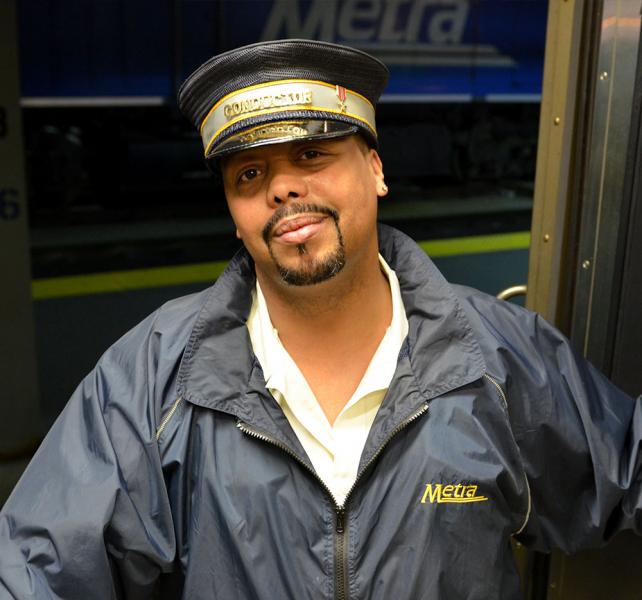 Omarr Hardaway
Omarr Hardaway
If you ever ride on one of conductor Omarr Hardaway’s trains, you’ll notice a small star dangling from the left side of his hat. It’s a Bronze Star, one the former staff sergeant for the U.S. Army earned during active combat missions in Iraq. He served in the military from 1995 to 2007, going back to help with gunnery training between his active service and starting his career at Metra nearly four years ago.
“The Army really knocks in your head: integrity, duty, honor, sacrifice, selflessness of service,” Hardaway said. “So transferring over to this job, of course, you want to be a good leader and know the things you’re supposed to do as a leader. But integrity is the biggest thing. That’s number one for me.”
Veterans Day can be a little emotional, Hardaway admits. He thinks about the men and women – particularly those he served with – who died in combat.
“I think about some of the men I couldn’t save. I really harp on Veterans Day, wishing they could be with their family,” Hardaway said. “…And sometimes I have to humble myself, because it’s really about the flag. It’s about the flag that we serve and what our country is supposed to be, what we’re representing. So when it comes to Veterans Day, I think about the men I served with and also the flag that I’m willing to die for.”
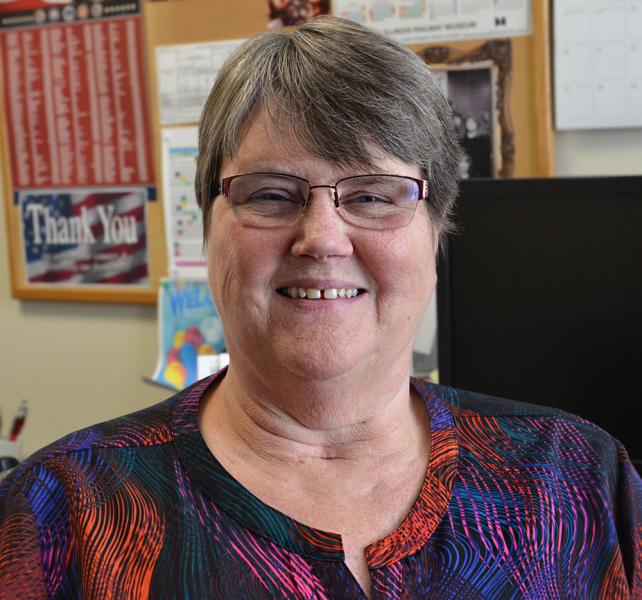 Lori Piecuch
Lori Piecuch
Lori Piecuch’s job requires her to work with a diverse group of people and help others do the same. As the Senior EEO Training Specialist at Metra, she helps ensure everyone has an equal opportunity to find employment with the agency, and educates employees about how to treat others.
While Piecuch has had 15 years to hone these skills at Metra, she can trace their origin back to her time in the U.S. Navy, where she served from 1973 to 1977 as a storekeeper second class.
“Certainly it opened my eyes to a lot of different kinds of people. Not that I wasn’t that way when I went in. I was pretty accepting of all people when I went in,” Piecuch said. “But the Navy exposed me to a lot of different cultures, races and religions. I got to work with many different people because I travelled to different places. I was in Puerto Rico for a year and I worked with the civilians there. I was part of the receiving party for the Vietnamese refugees while stationed in southern California. Many of my fellow sailors were Filipino and I learned about their culture. These experiences are the biggest advantage I got for this job. It exposed me to a lot of things that maybe I wouldn’t have known before.”
Veterans Day is about humility for Piecuch, who comes from a family brimming with Navy vets.
“It’s interesting because it doesn’t mean so much to me as a vet.” Piecuch said. “I’m more interested in recognizing those that served in Afghanistan, Vietnam and the World War II, or any conflict. I feel those are the ones who deserve the recognition.”
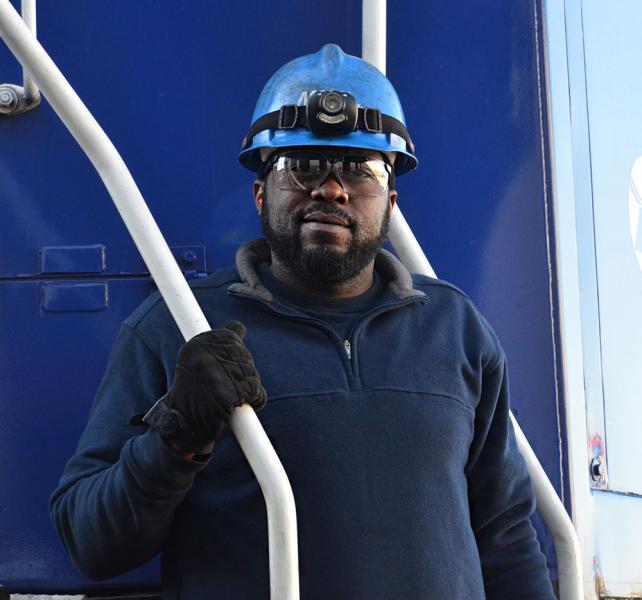 Shannon Frazier
Shannon Frazier
About 20 years ago, Shannon Frazier was a corporal in the U.S. Marine Corps serving as a light-, medium- and heavy-duty diesel mechanic for the 2nd Transportation Support Battalion. He can still be found around a diesel engine today, working as a locomotive mechanic – also known as a machinist – for Metra.
“That’s where I learned what makes diesel engines run the way they run. So locomotives having a diesel engine, it’s kind of a two plus two equals four situation,” Frazier said. “It was very instrumental in being able to adapt in my current position.”
To Frazier, Veterans Day is a time to honor sacrifice.
“It’s a time to reflect on all the things that make veterans unique. They volunteer to defend the country, to defend people they do and don’t know,” Frazier said. “It’s about honoring those who follow through with that duty to protect the country.”